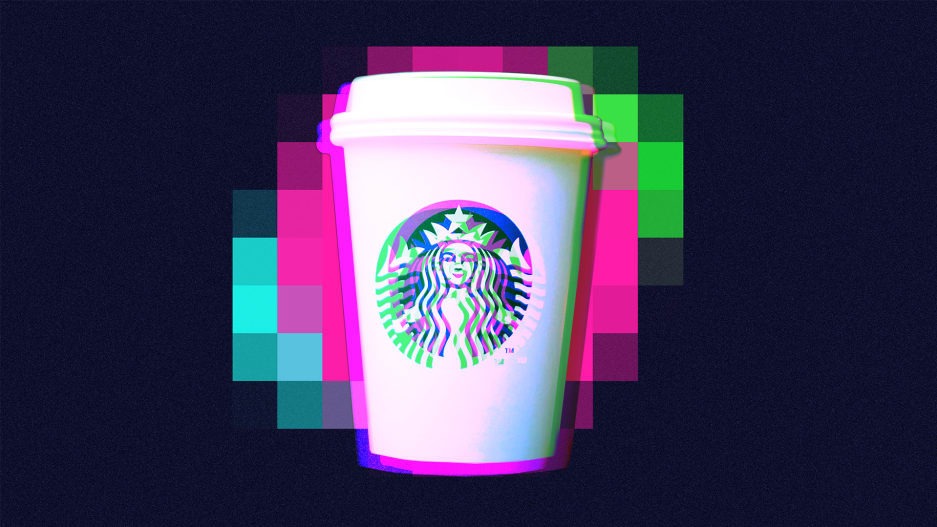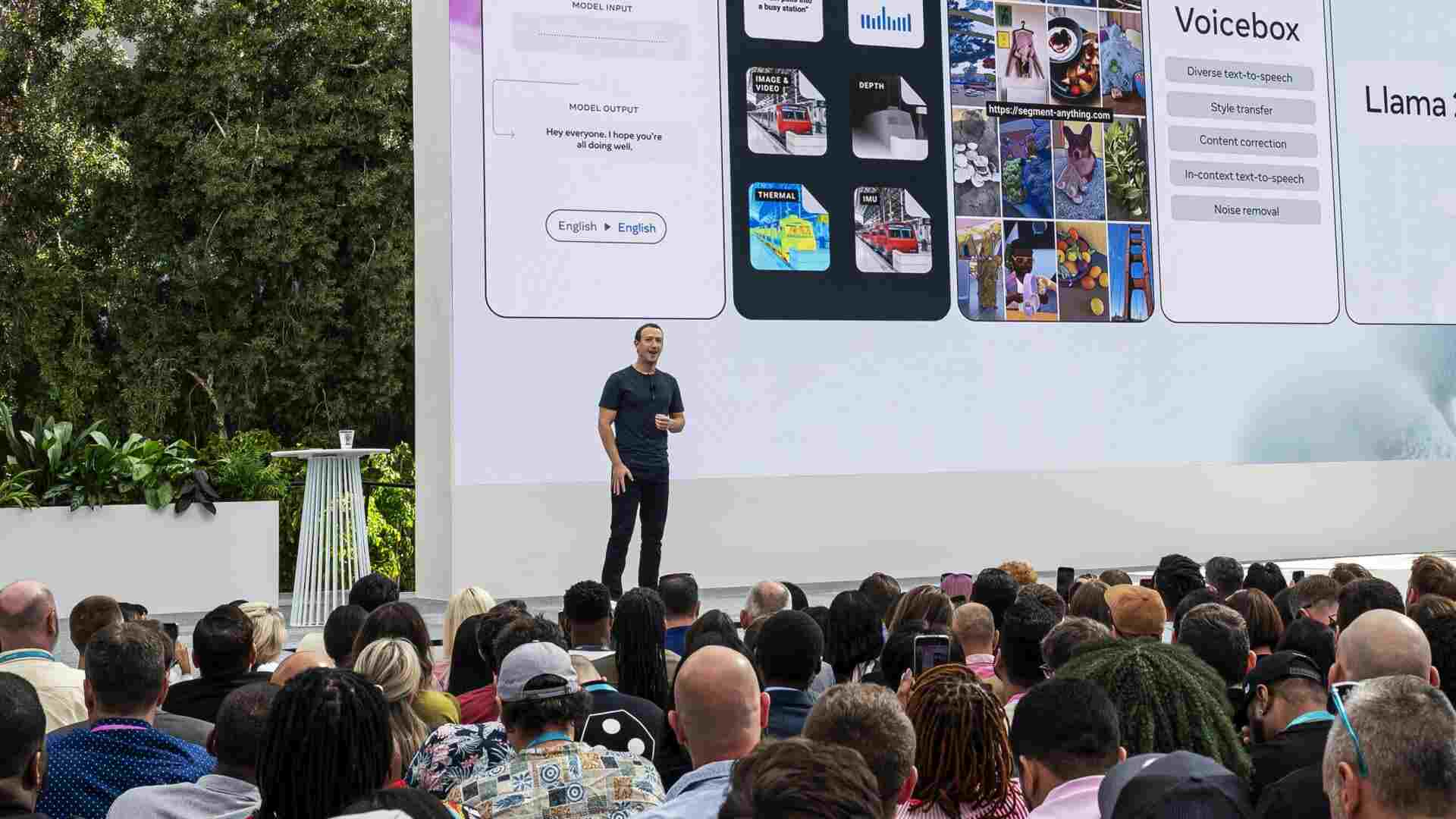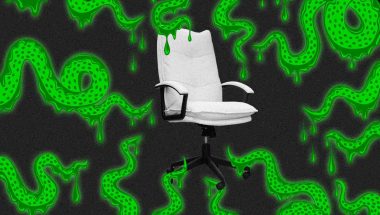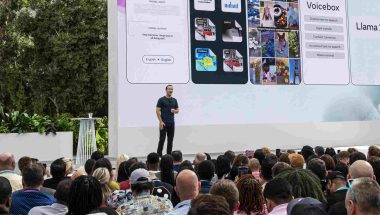- | 9:00 am
NFTs are dead. Long live digital collectibles
Adam Brotman built Starbucks rewards and payment program into the envy of corporate America. Now he wants to help all brands reinvent their relationship with their fans.

Adam Brotman collects sneakers. “I’m obsessed with Nike Dunk SBs!” he says. The former chief digital officer at Starbucks, the person who built everything from in-store Wi-Fi to the coffee giant’s rewards and payment apps, is also obsessed with how the forefront of digital tech can reinvent a brand’s relationship with its best customers.
A few years ago, Brotman was as ignorant of crypto and the blockchain as you might be today. But once he connected his passion for collecting sneakers to owning a digital collectible, he understood. “If you told me that I can own a collectible for my favorite brand that also had utility and gave me other fun things to have access to that brand,” he tells Fast Company, “You got my interest.”
That’s the idea behind Starbucks Odyssey, the new digital experience that Brotman’s Forum3—a startup he cofounded to help brands understand and leverage web3—helped the retailer create. Brotman, who is also Forum3’s co-CEO, spoke to Fast Company about the program, the issues with speculation in crypto, and why he’s so excited about the future of owning digital assets.
Fast Company: How did you first get involved and interested in web3?
Adam Brotman: My longtime closest friend, Andy Sack, who was an entrepreneur turned venture capitalist, had been involved in crypto and blockchain since I think as early as 2015 or 2016. He kept asking me to learn about it and join him in his learning journey on crypto, and then he decided to create a venture fund in the beginning of 2021. He asked me to invest in it and be a special advisor, but how am I going to be an advisor to it if I don’t understand blockchain or web3? So I learned as fast as I could as sort of a side thing. I stumbled across NFTs in February or March of 2021. NFTs weren’t really a thing that most people were even thinking about. They weren’t hyped. Andy wasn’t even thinking about NFTs, and he was the one that got me into the space. Coming from my background at Starbucks and then J.Crew [Brotman served as the retailer’s president, co-CEO, and chief experience officer in 2018 and 2019], I was just fascinated by the idea of a digital asset that anybody—let alone a brand—could manufacture or create that was both a collectible but also digital media and programmable. That hybrid of those things was so interesting to me because for the most part, brands have to choose between creating a product or giving a discount or just using digital media in some ways. The ability to put these things together, it changes the experience. Ownership changes experience. It creates these new network effects, and I was just fascinated by that.
So Andy and I decided to form a company on the side that we just owned 50-50 called Forum3 that allowed us to learn about NFTs outside of the fund structure, because we wanted to get our hands dirty and actually start getting involved in the community and maybe doing some of our own projects. Pretty quickly what that turned into is us consulting for other brands because we have this unique combination of Web 2 and Web3—expertise, particularly around loyalty.
FC: Let’s talk about Starbucks Odyssey. How would you explain it to someone at the stage before you did all of the research into NFTs?
AB: Every year Starbucks has these loyalty or rewards-based games that it launches. They’re sort of pop-up experiences. Right now, in December, there’s one called Starbucks for Life that’s really easy to use as a loyalty member, because you’re used to using your app or the web. You just click on the Starbucks for Life website, click one button, and you’re logged in. The more you go to Starbucks and use your loyalty app to buy things, you get more shakes of the globe, and you get more chances to win these fun prizes. They get millions of people playing this every year for just a month, but then poof, it goes away.
So one of the things I was inspired by when I got into the space was how cool would it be if Starbucks for Life was an always-on game? And instead of these little stickers or stamps that you get that maybe help you get to a potential reward, what if you could own those and trade them and get extra utility from them? And what if there was even, like, collectability to them? And what if it wasn’t just buying things from Starbucks? So get out of the linear spend and earn and get into more participate to collect and win. And that was fascinating to me.
Odyssey is basically an always-on game that is easy to use. You don’t have to know anything about any of the blockchain-based, Web3, crypto stuff, because you can play it and use it just with your Starbucks login. So if you want to collect and use these stamps, they are part of the game. But the game also involves getting points for doing activities and getting fun rewards and experiences for leveling up in the game. And these ownable, collectible stamps. They’re woven through the game, but you don’t have to know anything else about them but they’re a digital collectible. So if you want to sell one or go buy one, there’ll be a built-in marketplace right on the site for you to do that. If you want to take self custody of them and put it in your crypto wallet you can do that, too. You can decide to make it about the collectibles or you can decide to make it just about the fun of the game. It’s up to you.
FC: There are always skeptics of new technology, and right now there are a lot of them in the crypto space. How do you talk to those people who say they hate NFTs or just people who are suspicious of it, especially considering the last six months of what’s happened in crypto?
AB: There’s a bunch of stuff that’s happening in crypto, Web3, NFTs that has to do with speculation. To me that’s unfortunate, because the part that gets me excited is the collecting, the engagement, and the ownership of a digital asset that also doubles as an access pass. Why do you collect sneakers? Why do you collect baseball cards? It’s fun. People have an interest in it, they want to do it.
FC: I love that idea of digital collectibles. Do you see it as a replacement for the phrase NFT that is a bit tainted?
AB: The average person, including myself not that long ago, doesn’t understand and doesn’t care what an NFT is. So it’s not about replacing a term. It’s just trying to explain it in a way that’s more consistent with the use case that gets us excited as opposed to the speculative nature of cryptocurrencies. That’s where the term digital collectible is more useful, because it’s inherently understandable on its face, and it gets to the fun, engaging side of collecting and owning something.
FC: Why are brands the best way to explore these ideas?
AB: Loyalty programs are something that a lot of companies are taking another look at right now, either how they do them or why they do them, how they can innovate on them. Loyalty programs today tend to be pretty linear: You spend money to get points and convert those points into coupons or discounts. For a brand that wants to think about ways that aren’t so discount heavy and that can be more participatory and about storytelling and loyalty, [web3] is an exciting place to explore as a brand right now. It’s about a customer strategy, not a web3 strategy.
FC: Are there any people in this space that are inspiring you right now?
AB: I’m really inspired by what Nike is doing, with not only its acquisition of the Rtfkt team but also its impending plans for dotSwoosh. I am inspired by what was one of the original, great platforms in this area, which is NBA Top Shot and Dapper Labs. I’m inspired by Bobby Hundreds and the Hundreds team and their Adam Bomb Squad and the way that they’ve thought about NFTs as culture and community and have taken a very authentic approach to that.
FC: What’s next for you and Forum3?
AB: I’m pretty excited and humbled by the response we’ve gotten from all the different types of companies and organizations that have asked us to consult for them or that maybe want to get on our platform. Even in the midst of like a crypto winter and all of the other difficult things that are happening in this space right now, it has not stopped the curiosity and interest by brands to play with digital collectibles and experiential loyalty, because that is a use case that brands understand and actually want to experiment with right now.






































